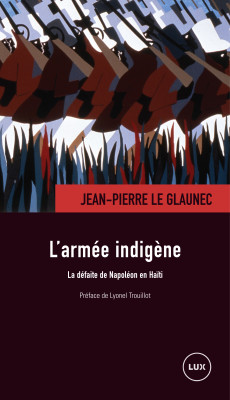Theodore Dalrymple recently read a book by Sherbrooke University professor Jean-Pierre Le Glaunec on the Battle of Vertières which ended Napoleon’s attempt to recapture the island and re-enslave the population:
Haiti is one of those countries that you can leave after a visit, but that never quite leaves you. Its history is so heroic and so tragic, its present condition often so appalling, its culture so fascinating and its people so attractive, that even if it does not become the main focus of your intellectual attention, you never quite lose your interest in it, or in its history.
That is why, recently in a Parisian bookshop, I bought a book about the Battle of Vertières, the last gasp of the expedition sent out by Napoleon to Haiti, or Saint-Domingue as it was still known (“The Pearl of the Antilles” by those who profited from it), to return it to the condition of a vast slave plantation. General Leclerc, Napoleon’s brother-in-law, commanded, and 50,000 French soldiers, including Leclerc, lost their lives in this ill-fated and, from our current moral standpoint, malign expedition. Six weeks after its final defeat at the hands of the former slaves, Haiti, or Hayti — under the first of its many dictators, Jean-Jacques Dessalines, who made himself emperor and was assassinated two years later — declared its independence from France.
The book, titled L’Armée indigène, “The Native Army”, was by a French historian, Jean-Pierre Le Glaunec, who now teaches at Sherbrooke University in Quebec. The book recounts not only the history of the battle itself, which took place on 18 November 1803, but how it has been remembered, or forgotten (especially in France), in the subsequent two centuries, and the purposes to which the memory has been put.
The author is a specialist in Haitian and American history. His fundamental historical outlook is very different from mine, but that did not reduce my pleasure in his book, for he writes well and marshals much interesting evidence, the fruit of diligent original research in primary sources. And it seems to me that no one can fail to be moved by the heroism and determination of the former slaves to defend their newfound freedom from the attempt to return them to servitude. The slave colony of Saint-Domingue had been among the cruellest ever known; the methods of Napoleon’s expeditionary army grew more and more vicious as it suffered repeated decimations. That history has its ironies — it is possible that, had the slave revolution failed, Haiti would now be more prosperous than it is, like Guadeloupe or Martinique — does not detract from the righteousness of the cause of the former slaves. They could not be expected to foresee the two centuries of failure, poverty, and oppression to come. Besides, the dignity conferred by the victory cannot be simply set against its deleterious long-term material consequences: Man does not live by GDP alone.
The rest of the article delves into Professor Le Glaunec’s other recent book on George Floyd’s death and fails to show the same intellectual honesty and willingness to face unpleasant facts that his Haitian history demonstrates.
In other words, Professor Le Glaunec, who makes much of his dispassionate resort to historical evidence by contrast with his opponent, reveals himself to be at least as parti pris as that opponent. He displays a lack of curiosity about George Floyd that surely derives from his political standpoint. As for the dedication to the memory of George Floyd, it is morally obtuse: for a man does not become good by being wrongfully killed. A mother loves her son because he is her son, not because he is good, and therefore the grief of his family is understandable and easily sympathised with; but for others to turn him into what he was not, a martyr to a cause, is to display at once a moral and an intellectual defect.
The connection between historical explanation and individual morality is nowhere more complex than in Haiti. The victor of Vertières, the former slave Dessalines, was declared dictator for life, with the right to choose his successor, in the very document that announced the independence of Haiti and the freedom of its population. Dessalines then undertook a policy that today would be called genocide: he ordered that every white settler, man, woman, and child killed (about 6000 in all) who remained in the country after the last of the French troops should be killed, and his orders were carried out. The truly atrocious conduct of the French explained this genocide no doubt, but did it justify it? To answer in the affirmative is to claim that there are good, or justified, genocides; to answer no is to be accused of a lack of psychological insight into the righteous anger of Dessalines and others, or of a lack of sympathy for the state of mind of the victims of slavery.
The death of George Floyd was similarly wrong; but that does not mean that the reaction to it was right.




